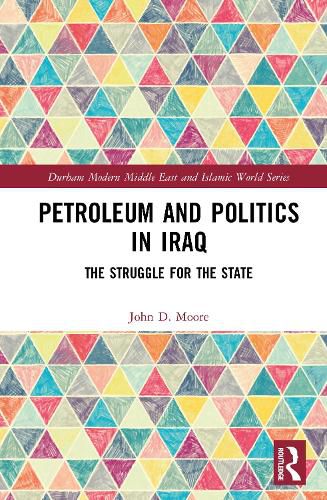Readings Newsletter
Become a Readings Member to make your shopping experience even easier.
Sign in or sign up for free!
You’re not far away from qualifying for FREE standard shipping within Australia
You’ve qualified for FREE standard shipping within Australia
The cart is loading…






Petroleum and Politics in Iraq: The Struggle for the State investigates how oil wealth, elite power struggles, and foreign intervention have shaped the fragile nature of the modern Iraqi state.
Focusing on the period from Iraq's foundation through to the aftermath of the 2003 U.S.-led invasion, this book analyses how rentierism, tactical political decision-making, and coercion have interacted to erode, rather than reinforce, state cohesion. Drawing on rentier state theory, Joel Migdal's "politics of survival," and Antonio Giustozzi's work on coercive institutions, it traces how successive Iraqi regimes - despite access to massive oil rents and international aid - failed to build lasting legitimacy or effective governance. Instead, the reliance on coercion became increasingly pronounced, leaving the state vulnerable to internal collapse and foreign influence. Through a careful examination of both pre- and post-2003 Iraq, the book argues that elite strategies and international actions have consistently undermined opportunities for meaningful state consolidation and raises critical questions about the future trajectory of Iraq's territorial and political integrity.
Essential reading for scholars of Middle East politics, international relations, and political economy, this book also offers valuable insights for policymakers, analysts, and practitioners involved in post-conflict reconstruction, state-building, and governance in resource-dependent and conflict-prone contexts.
$9.00 standard shipping within Australia
FREE standard shipping within Australia for orders over $100.00
Express & International shipping calculated at checkout
Petroleum and Politics in Iraq: The Struggle for the State investigates how oil wealth, elite power struggles, and foreign intervention have shaped the fragile nature of the modern Iraqi state.
Focusing on the period from Iraq's foundation through to the aftermath of the 2003 U.S.-led invasion, this book analyses how rentierism, tactical political decision-making, and coercion have interacted to erode, rather than reinforce, state cohesion. Drawing on rentier state theory, Joel Migdal's "politics of survival," and Antonio Giustozzi's work on coercive institutions, it traces how successive Iraqi regimes - despite access to massive oil rents and international aid - failed to build lasting legitimacy or effective governance. Instead, the reliance on coercion became increasingly pronounced, leaving the state vulnerable to internal collapse and foreign influence. Through a careful examination of both pre- and post-2003 Iraq, the book argues that elite strategies and international actions have consistently undermined opportunities for meaningful state consolidation and raises critical questions about the future trajectory of Iraq's territorial and political integrity.
Essential reading for scholars of Middle East politics, international relations, and political economy, this book also offers valuable insights for policymakers, analysts, and practitioners involved in post-conflict reconstruction, state-building, and governance in resource-dependent and conflict-prone contexts.